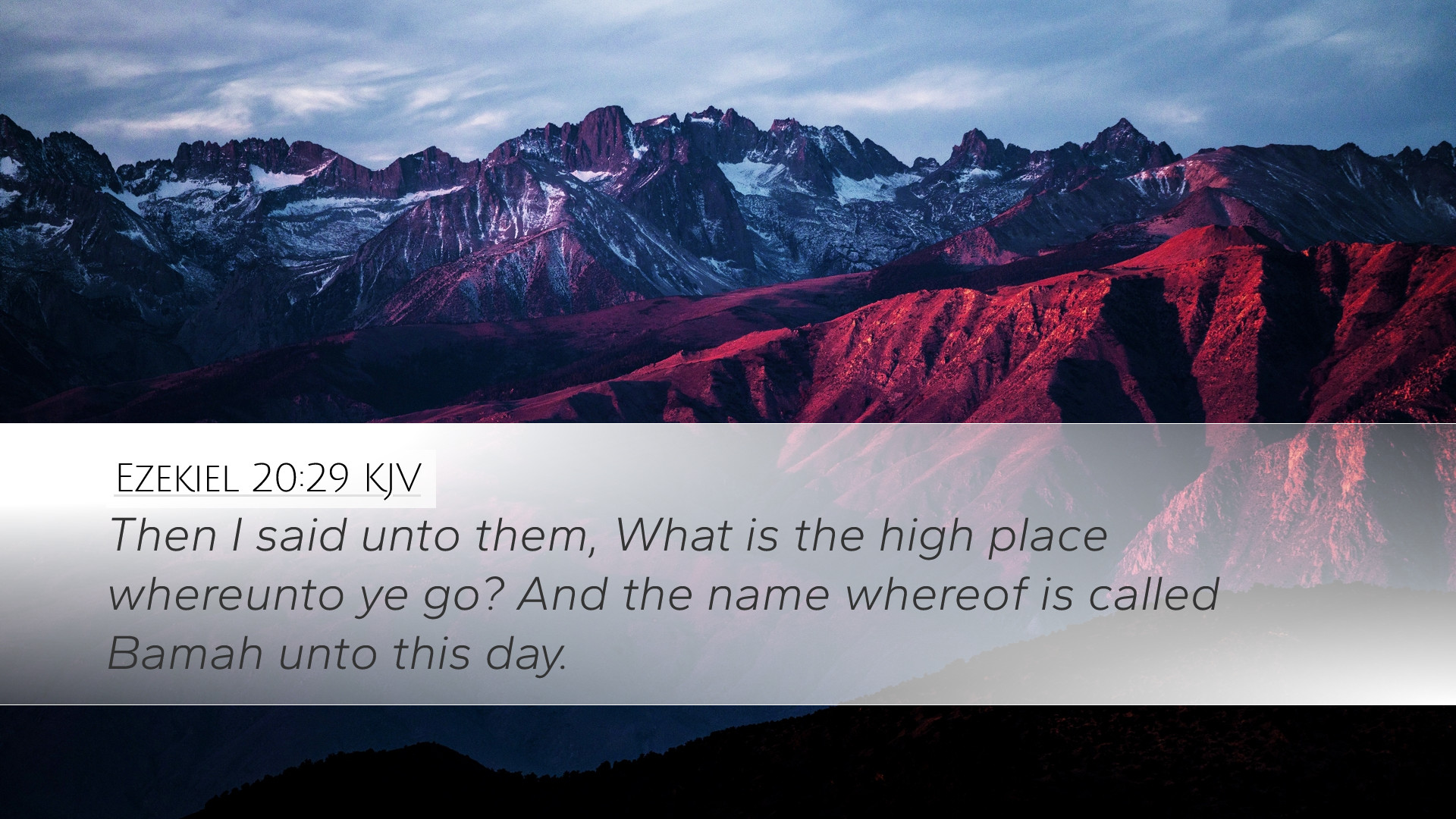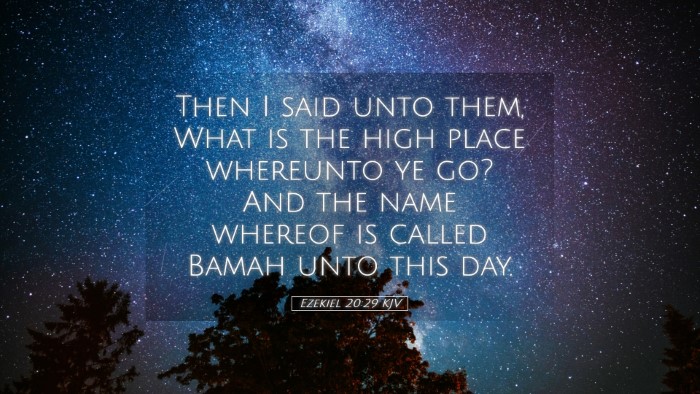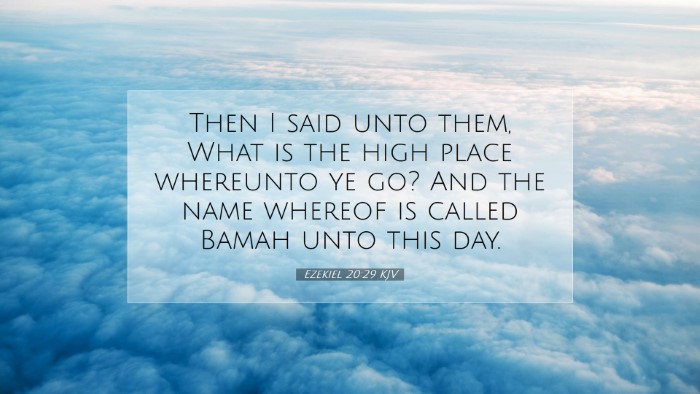Ezekiel 20:29 Commentary
Verse Context: Ezekiel 20:29 reads:
"Then said I unto them, What is the high place whereunto ye go? And the name thereof is called Bamah unto this day."
This verse occurs in the context of God speaking to the Israelites through the prophet Ezekiel, addressing their idolatrous practices and the reasons behind their spiritual decline.
Historical Context
The setting of Ezekiel’s prophecy is during the Babylonian exile, a critical phase in Israel's history. The Israelites had repeatedly turned to idolatry, despite God's covenant with them. High places, or "Bamah," were sites of worship in ancient Israelite culture that often included altars and other religious paraphernalia used for sacrifices to false gods. This verse is significant as it reflects the continued dedication of the Israelites to these practices, highlighting their obstinacy against returning wholeheartedly to Yahweh.
Commentary Insights
Matthew Henry's Commentary
Matthew Henry comments on the apparent disconnect between the worship of Yahweh and the practices of idolatry. He notes that the question posed in Ezekiel 20:29 serves as a critique of the high places:
- Divine Inquiry: God’s questioning illustrates His awareness of Israel’s practices. Henry emphasizes that God's inquiry is not for information but to provoke thought and reflection in His people.
- Identification of Idolatry: The naming of "Bamah" represents a location intimately connected with idolatrous worship, indicating the depth of Israel's deviation from God's commands.
- Call to Accountability: Henry suggests that the verse serves as an invitation for self-examination, urging the Israelites to confront their infidelity and its consequences.
Albert Barnes' Notes
Albert Barnes elaborates on the name "Bamah," translating it as "high place," which denotes locations of pagan worship. He highlights several key aspects:
- Symbol of Rebellion: The high places symbolize a rebellion against divine authority. The persistence of such practices reflects a heart unwilling to yield to God's sovereignty.
- Historical Significance: Barnes notes that these high places were remnants of a misguided tradition that plagued Israel throughout its history, even from the time of the judges and kings.
- Exhortation to Return: The inquiry about the high place can be seen as a clarion call to repentance. The reference to the ongoing practice until the time of Ezekiel underscores the urgent need for reform.
Adam Clarke's Commentary
Adam Clarke focuses on the implications of the high places within the spiritual life of the Israelites. He discusses:
- Spiritual Adultery: Clarke argues that these high places represent spiritual adultery, showcasing Israel's unfaithfulness to God as they sought fulfillment in foreign deities.
- Call for Purity: He emphasizes that God’s question is deeply probing, calling Israel to reflect on their worship practices and the pure worship He desires.
- Historical Relevance: Clarke also connects the ongoing existence of these high places to the broader narrative of Israel’s history, illustrating a pattern of confusion and compromise that necessitated prophetic intervention.
Theological Implications
This verse accentuates several theological themes that resonate within the broader narrative of Scripture:
- God’s Patience and Justice: The persistence of God in addressing Israel's idolatries reflects His patience, but it also foreshadows the judgment that accompanies unrepentant sin. The inquiry makes clear that God is not unaware of what is happening, even in the high places.
- Idolatry's Consequences: The mention of Bamah illustrates the consequences of idolatry, namely spiritual desolation and alienation from God. This serves as a reminder for contemporary readers about the dangers related to the high places of the modern era.
- Call to Authentic Worship: This passage is a clarion call to evaluate where one directs worship and to ensure that it is firmly rooted in the truth of God’s Word rather than cultural or personal preferences.
Application for Today's Believer
For pastors, students, and scholars today, Ezekiel 20:29 serves as a poignant reminder of the importance of fidelity in worship. The struggle against idolatry is not merely historical; it extends to the present day in various forms:
- Self-Examination: Individuals should regularly engage in self-examination regarding personal idols—those things that might distract from devotion to Christ.
- Community Accountability: Church leaders are called to shepherd their congregations towards purity in worship, addressing contemporary high places that may exist within the community.
- Teaching and Preaching: When teaching God’s Word, it is crucial to expose the temptation of idolatry and encourage a return to authentic worship characterized by sincerity and truth.
Conclusion
Ezekiel 20:29 serves as a striking reminder of God’s continued effort to engage with His people about their fidelity to Him. Through the lens of public domain commentaries, we see the multifaceted implications of this verse—historically, theologically, and personally. The high places symbolize a conflict between idolatry and authenticity that continues to resonate today, urging every believer to a deeper commitment to God.


